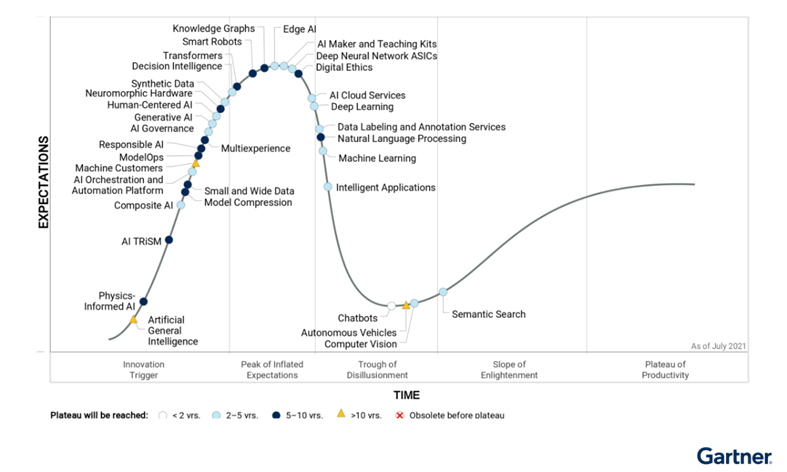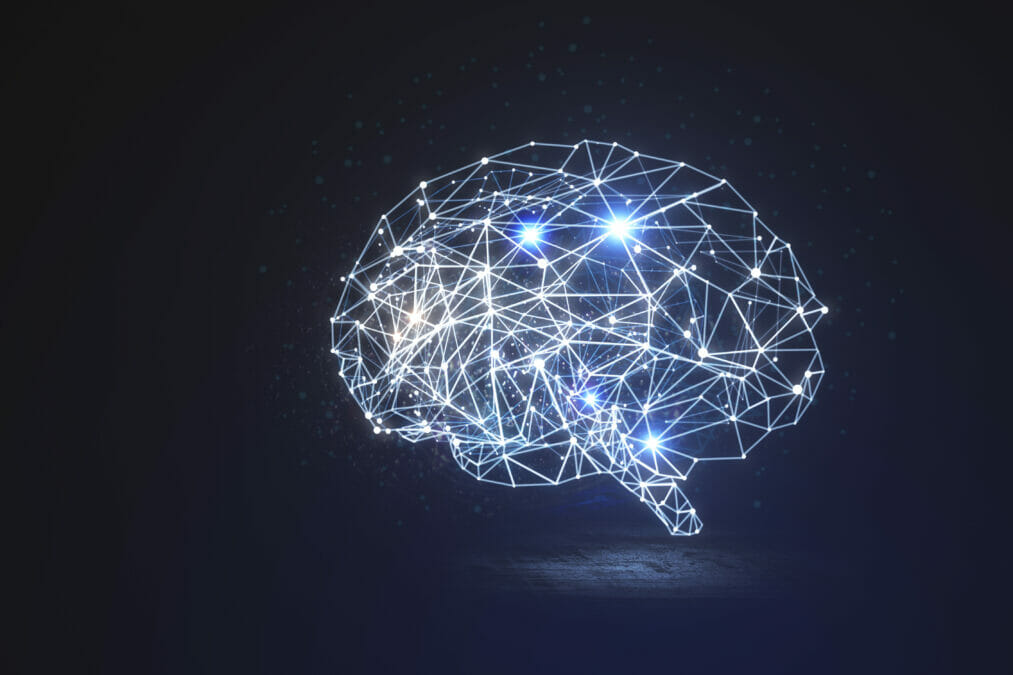According to the latest AI hype cycle from Gartner, the AI market remains in an evolutionary state, with a high percentage of innovations appearing on the upward-sloping early stage, named the ‘Innovation Trigger’.
This finding indicates a market trend of end users seeking specific technology capabilities that are often beyond the capabilities of current AI tools.
Meanwhile, smart robots, knowledge graphs, edge AI and digital ethics are among the trends at the ‘Peak of Inflated Expectations’.
“AI innovation is happening at a rapid pace, with an above-average number of technologies on the Hype Cycle reaching mainstream adoption within two to five years,” said Shubhangi Vashisth, senior principal research analyst at Gartner.
“Innovations including edge AI, computer vision, decision intelligence and machine learning are all poised to have a transformational impact on the market in coming years.”

The four trends driving AI innovation today, according to Gartner, are as follows:
Responsible AI
Increased trust, transparency, fairness and auditability of AI is believed to be of growing importance to stakeholders, and responsible AI is helping to achieve this.
“Responsible AI helps achieve fairness, even though biases are baked into the data; gain trust, although transparency and explainability methods are evolving; and ensure regulatory compliance, while grappling with AI’s probabilistic nature,” explained Svetlana Sicular, research vice-president at Gartner.
The global research and advisory body expects that by 2023, all personnel hired for AI development and training work will have to demonstrate expertise in responsible AI.
Small and wide data
With data forming the foundation of successful AI initiatives, small and wide data approaches enable more robust analytics and AI, reduce dependency on big data, and deliver richer, more complete situational awareness.
According to Gartner, 70% of organisations will be compelled to shift their focus from big to small and wide data by 2025, providing more context for analytics and making AI less data-hungry.
“Small data is about the application of analytical techniques that require less data but still offer useful insights, while wide data enables the analysis and synergy of a variety of data sources,” said Sicular.
“Together, these approaches enable more robust analytics and help attain a more 360-degree view of business problems.”
Hot topics and emerging trends in data science
Operationalisation of AI platforms
The urgency of leveraging AI for business transformation is driving the need for operationalisation of AI platforms.
This means moving AI projects from concept to production, so that solutions can be relied upon to solve enterprise-wide problems.
“Gartner research has found that only half of AI projects make it from pilot into production, and those that do take an average of nine months to do so,” said Sicular.
“Innovations such as AI orchestration and automation platforms (AIOAPs) and model operationalisation (ModelOps) are enabling reusability, scalability and governance, accelerating AI adoption and growth.”
Efficient use of resources
Given the complexity and scale of the data, models and compute resources involved in AI deployments, AI innovation requires such resources to be used at maximum efficiency.
Multi-experience, composite AI, generative AI and transformers are gaining visibility in the AI market for their ability to solve a wide range of business problems in a more efficient manner.







